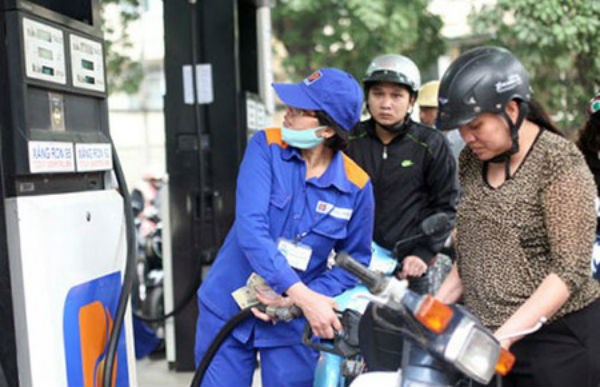
The petrol price increased twice within one month by VND3,200 per liter, angering the public.
“I do believe that it is necessary to clarify the impact of the 300 percent environmental protection tax increase on the petrol price and the use of receipts from tax collection,” said Dr. Tran Du Lich, a renowned economist and a National Assembly Deputy.
When announcing the environment protection tax increase in late April, the Ministry of Finance (MOF) reassured the public that the tax increase will not lead to a petrol price increase, and that the watchdog agency will keep the price stable.
However, the petrol price still increased by VND 3,200 per liter to exceed the VND20,000 per liter threshold. MOF said that the environmental protection tax increase was not the cause behind the increase.
It said that it fulfilled its commitments of stabilizing prices, and that the domestic price increased because of global price increases.
The public was not satisfied with the explanation by MOF. “Taxes are used as a tool for management agencies to regulate the markets and prices. It is ridiculous to say that higher taxes would not lead to higher prices,” an analyst said.
Regarding the environmental protection tax increase, Lich said the tax adjustment made by MOF was unreasonable.
“Why do the fishing boats, which operate in the open sea and do not affect the environment, also have to bear an environmental tax?” Lich said.
The watchdog agency explained that due to the price fluctuations in the world market, Vietnam has to raise the tax from VND1,000 per liter to VND3,000 per liter.
However, Lich said there were some questions that need to be clarified. First, why the tax increase was fixed at 300 percent; second, how MOF will use the revenue from the tax collection.
The economist went on to say that the revenue from environmental tax must be used for appropriate purposes, and that it must not be used to offset the decrease in revenue from import taxes, or used for government spending.
Lich emphasized the necessity of the National Assembly to monitor the petrol pricing to be sure that pricing is implemented in a transparent and reasonable way.
“If the National Assembly does not do this, I think the National Assembly’s committees, including the Finance & Budget Committee and Economics Committee, can undertake the work to clarify the existing problems in price management,” he said.
Tran Thuy